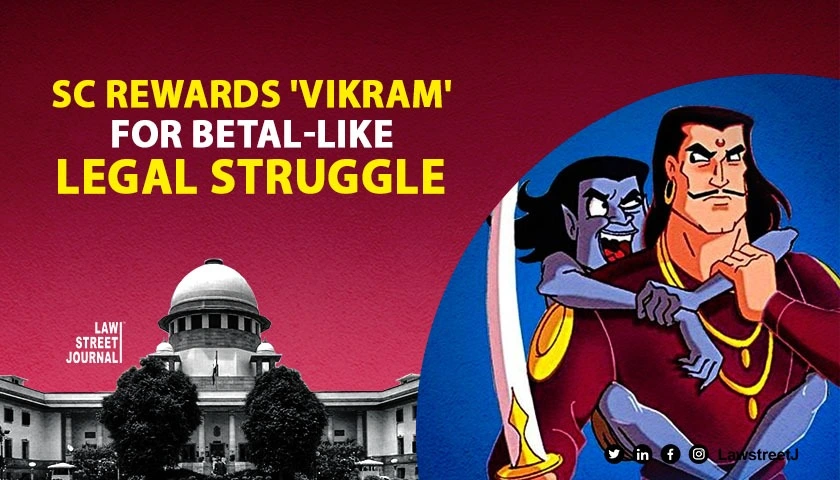NEW DELHI: The Supreme Court has likened a man with legendary 'Vikram' for he continued to fight for his right for appointment as a primary school teacher but found it unfortunate that he could not be appointed to the post despite the denial being illegal and arbitrary.
The court stressed the need for formulating a reasonable equivalent for restitution of the wrongful action and building an appropriate system for preserving the rights of the parties till the final determination takes place in a dispute.
A bench of Justices P S Narasimha and Sandeep Mehta ordered the Union government to pay Rs one lakh compensation to Manoj Kumar.
Since the school was closed last year during the legal fight, the bench said, "In this situation, we must consider an alternative restitutory measure in the form of monetary compensation".
The court appreciated the spirit of the appellant, who has steadfastly contested his case like the legendary 'Vikram' (against Betala, in the famous Vetalapancavimsati, the original being the Kathasaritsagara work of the 11th Century by Somadeva) from the year 2017 when he was illegally denied the appointment on May 22, 2017.
"This is an unfortunate situation where the court finds that the action of the respondent was arbitrary, but the consequential remedy cannot be given due to subsequent developments. One stark reality of the situation is the time that has passed between the order of 2018 impugned herein and the judgment that we pronounce in 2024," the bench said.
Upon his appeal against the Delhi High Court's judgement, the bench said, "We see several such cases when our final hearing board moves. Appeals of more than two decades are awaiting consideration. It is distressing but certainly not beyond us. We must and we will find a solution to this problem."
The bench said the temporal gap between the illegal or arbitrary action and their subsequent adjudication by the courts introduces complexities in the provision of restitution.
As time elapses, the status of persons, possession, and promises undergoes transformation, directly influencing the nature of relief that may be formulated and granted, it said.
"It is in this reality and prevailing circumstance that we must formulate an appropriate system for preserving the rights of the parties till the final determination takes place. In the alternative, we may also formulate a reasonable equivalent for restitution of the wrongful action," the bench said.
The court said inherent difficulty in bridging the time gap between the illegal impugned action and restitution is certainly not rooted in deficiencies within the law or legal jurisprudence but rather in systemic issues inherent in the adversarial judicial process.
The protracted timeline spanning from the filing of a writ petition, service of notice, filing of counter affidavits, final hearing, and then the eventual delivery of judgment, coupled with subsequent appellate procedures, exacerbates delays, it said.

















